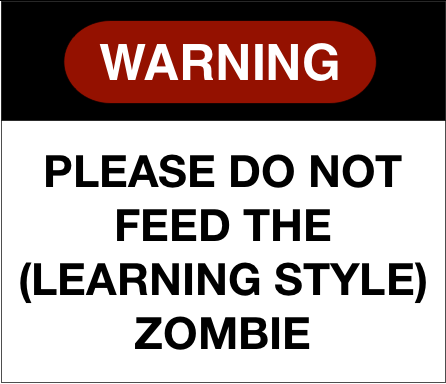As I push for better learning design, I’m regularly reminded that working with subject matter experts (SMEs) is critical, and problematic. What makes SMEs has implications that are challenging but also offers a uniquely valuable perspective. I want to review some of those challenges and opportunities in one go.
One of the artifacts about how our brain works is that we compile knowledge away. We start off with conscious awareness of what we’re supposed to be doing, and apply it in context. As we practice, however, our expertise becomes chunked up, and increasingly automatic. As it does so, some of the elements that are compiled away are awarenesses that are not available to conscious inspection. As Richard Clark of the Cognitive Technology Lab at USC lets us know, about 70% of what SMEs do isn’t available to their conscious mind. Or, to put it another way, they literally can’t tell us what they do!
On the other hand, they have pretty good access to what they know. They can cite all the knowledge they have to hand. They can talk about the facts and the concepts, but not the decisions. And, to be fair, many of them aren’t really good at the concepts, at least not from the perspective of being able to articulate a model that is of use in the learning process.
The problem then becomes a combination of both finding a good SME, and working with them in a useful way to get meaningful objectives, to start. And while there are quite rigorous ways (e.g. Cognitive Task Analysis), in general we need more heuristic approaches.
My recommendation, grounded in Sid Meier’s statement that “good games are a series of interesting decisions” and the recognition that making better decisions are likely to be the most valuable outcome of learning, is to focus rabidly on decisions. When SMEs start talking about “they need to know X” and “they need to know Y” is to ask leading questions like “what decisions do they need to be able to make that they don’t make know” and “how does X or Y actually lead them to make better decisions”.
Your end goal here is to winnow the knowledge away and get to the models that will make a difference to the learner’s ability to act. And when you’re pressed by a certification body that you need to represent what the SME tells you, you may need to push back. I even advocate anticipating what the models and decisions are likely to be, and getting the SME to criticize and improve, rather than let them start with a blank slate. This does require some smarts on the part of the designer, but when it works, it leverages the fact that it’s easier to critique than generate.
They also are potentially valuable in the ways that they recognize where learners go wrong, particularly if they train. Most of the time, mistakes aren’t random, but are based upon some inappropriate models. Ideally, you have access to these reliable mistakes, and the reason why they’re made. Your SMEs should be able to help here. They should know ways in which non-experts fail. It may be the case that some SMEs aren’t as good as others here, so again, as in ones that have access to the models, you need to be selective.
This is related to one of the two ways SMEs are your ally. Ideally, you’re equipped with stories, great failures and great successes. These form the basis of your examples, and ideally come in the form of a story. A SME should have some examples of both that they can spin and you can use to build up an example. This may well be part of your process to get the concepts and practice down, but you need to get these case studies.
There’s one other way that SMEs can help. The fact that they are experts is based upon the fact that they somehow find the topic fascinating or rewarding enough to spend the requisite time to acquire expertise. You can, and should, tap into that. Find out what makes this particular field interesting, and use that as a way to communicate the intrinsic interest to learners. Are they playing detective, problem-solver, or protector? What’s the appeal, and then build that into the practice stories you ask learners to engage in.
Working with SMEs isn’t easy, but it is critical. Understanding what they can do, and where they intrinsic barriers, gives you a better handle on being able to get what you need to assist learners in being able to perform. Here are some of my tips, what have you found that works?
